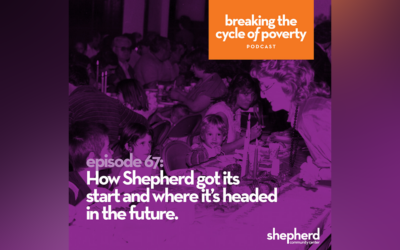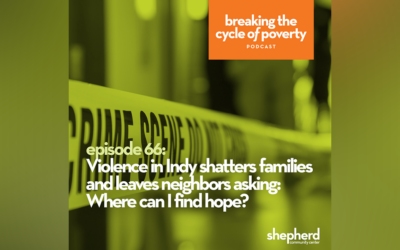Following biblical principles can be good for your family’s finances. And there’s academic research from some of the best universities in the world to prove it.
In 2020, researchers from Yale University, the London School of Economics and Northwestern University investigated the links between faith in God and a subsequent decline in poverty. The economists’ research concluded that families in the Philippines who attended classes on Christian values and theology saw their household income significantly increase while a control group who didn’t receive religious instruction did not reap a bump in income.
The lead researcher, Yale University finance professor James Choi, said the rise in income might be attributed to Christian teaching on overcoming hardships. Study participants may have thought, “I can pull through this because God is watching over me, and He has a plan for me.”
Such findings aren’t new or surprising for the team at Shepherd Community Center, where faith is a personal God is the first of 10 assets essential for breaking the cycle of generational poverty.
“The Bible teaches us that we have hope for today and tomorrow,” Shepherd Executive Director Jay Height said. “As Christians, we have a clear purpose and a bright future. So, we can learn to look beyond our current circumstances and to persevere in school, at work and in our families.”
Hope and perseverance are key attributes for overcoming setbacks at work, in school and at home. And with hope comes the emotional and mental energy to plan for a brighter future, even when current circumstances are hard.
“So many of our neighbors have bought into the lie that they are so broken that God couldn’t love them,” Height said. “They believe the lie that, ‘If they really knew, they couldn’t love me.’ Jesus deals with that and says, ‘I know you. I created you. And I love you.’ Understanding that gives people the fortitude to move forward and to understand that somebody understands them and wants the best for them.”
Shepherd, of course, is a Christ-centered ministry and that fact shapes every program and every service that the organization offers. But how does that relate directly to efforts to reduce poverty?
“There’s compassion and there’s feeling sorry for,” Height said. “Compassion is of God and feeling sorry for is a perversion of that. The difference between compassion and sympathy is distance. Compassion draws me near you, and together we can overcome. It’s relational. Feeling sorry for is when I pass a guy on the sidewalk and drop a quarter in his bucket. I’m not making a connection with him. Christ modeled for us how to make connections, and we want to do that at Shepherd. We want to build relationships, not just programs.”




